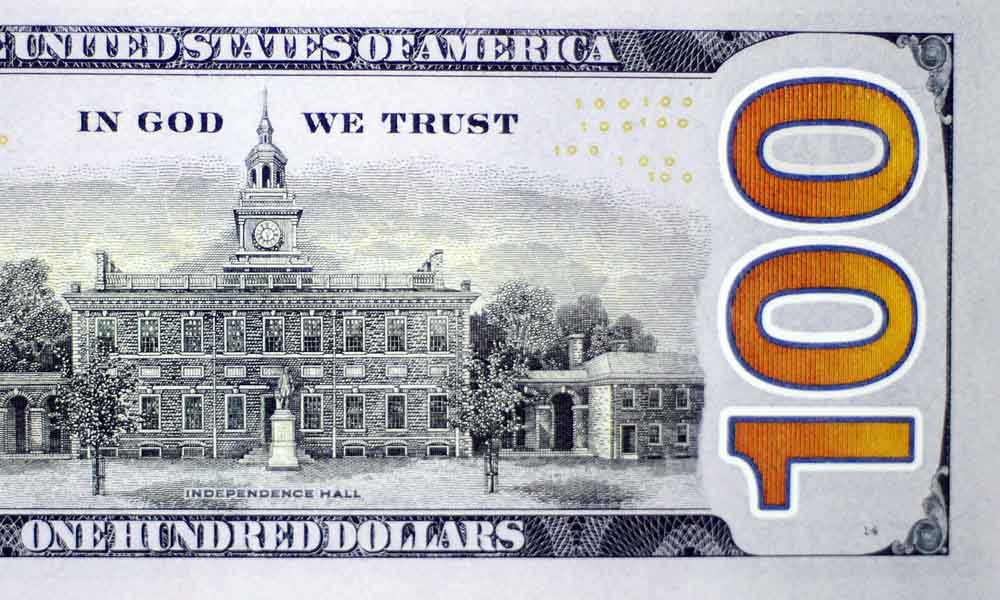
Back of a $100 note (CNS/Astrid Riecken, EPA)
Separated by a continent, the dioceses of Sacramento, California, and Camden, New Jersey, are also divided by degrees of financial transparency.
Parishioners in Sacramento can find out where their donations go with the click of a button on the diocesan website. Those in the Diocese of Camden, which covers southern New Jersey, will have a more difficult time.
That is a takeaway from a study on financial transparency undertaken recently by Voice of the Faithful, a church watchdog group. The study surveyed dioceses and archdioceses across the country, rating them from most transparent to most opaque. The study was based on how much financial information is accessible on diocesan websites.
Sacramento scored the highest, 59 on a 60-point scale. Camden, joined by the Archdiocese of Mobile, Alabama; and the Dioceses of Brownsville, Texas, and Biloxi, Mississippi, scored a 10, the lowest possible grade. The study took place last summer 2017.
Those dioceses and archdioceses that scored highest behind Sacramento are the Archdiocese of Milwaukee, Wisconsin; the Diocese of Cleveland, Ohio; the Diocese of Des Moines, Iowa; the Archdiocese of Baltimore, Maryland, and the Archdiocese of Kansas City, Kansas.
"At this point the public face of any corporation is on their website."
—Margaret Roylance, Voice of the Faithful
Transparency in diocesan financial statements is a means to keep dioceses accountable while also encouraging donations, Margaret Roylance, a member of the Voice of the Faithful committee that put together the study, told NCR.
"At this point the public face of any corporation is on their website," said Roylance, noting that the Voice of the Faithful team scoured the diocesan websites in search of financial information. Information on Sacramento was easily accessible, while others were far less so. Easy access to audited financial statements provides potential benefactors "a pretty good idea of what is going on," said Roylance.
Providing public information is also a check on potential problems such as undisclosed sex abuse settlements and embezzlement, she said.
Roylance has a doctorate in engineering from MIT, with an expertise in providing information for government-funded projects. The Voice of the Faithful committee also included a certified public accountant and other finance professionals.
The more opaque dioceses included the Archdiocese of New York. By contrast, some smaller dioceses, such as Yakima, Washington, scored high. According to the study, out of 177 U.S. dioceses surveyed, 51 (44 dioceses and 7 archdioceses) posted no financial data on their websites.
Advertisement
Michael Walsh, Diocese of Camden spokesman, said that the diocese will implement changes in response to the Voice of the Faithful study. He said the diocese will add information on its website, including contact numbers for the diocesan finance office. But there are currently no plans to include financial statements on the diocesan website.
[Peter Feuerherd reports on parish issues for NCR's Field Hospital blog. He previously worked as director of communications for the Diocese of Camden.]
We can send you an email alert every time The Field Hospital is posted. Go to this page and follow directions: Email alert sign-up.








